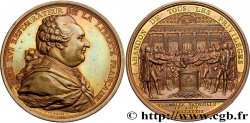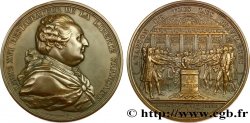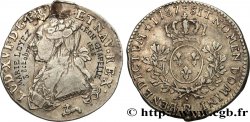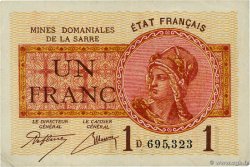正面
正面的文字 AMOR. PATRIAE ; À L'EXERGUE : IETTON.
正面的说明书 Un vase orné, surmonté d'un temple à six colonnes.
正面的翻译 L'amour de la patrie.
背面
背面的文字 VIVE. LA. VILLE. DE. PARIS ; À L'EXERGUE : L'AN. 7. DE. LA. LIBERTE.
背面的说明书 Vue de la ville de Paris.
历史细节
LOUIS XVI
(05/10/1774-01/21/1793)
In 1789, events will accelerate and cause the fall of royalty. If on May 5, the King opened the meeting of the States General in front of 1,200 deputies (doubling of the third), in the face of the stagnation of the debates, the Third Estate proclaimed itself in the National Assembly with certain deputies of the two other Orders, the Nobility and the Clergy. On June 20, it is the Oath of the Jeu de Paume of Versailles. On June 23, the King wants to suspend the debates, (intervention of Mirabeau: "we are here by the will of the people, we will only get out by the force of bayonets"). The National Constituent Assembly is formed by the three Orders on July 9. The King dismisses Necker on July 11, but will recall him after the storming of the Bastille on July 14, 1789. Bailly is the first mayor of Paris, appointed on July 15. Following the Great Fear which spreads in the countryside, on the night of August 4, it is the abolition of privileges and feudal rights. The Declaration of the Rights of Man and of the Citizen is voted on August 26, 1789.








 对产品描述纠错
对产品描述纠错 打印
打印 分享我的选择
分享我的选择 提问
提问 Consign / sell
Consign / sell
 产品介绍
产品介绍









